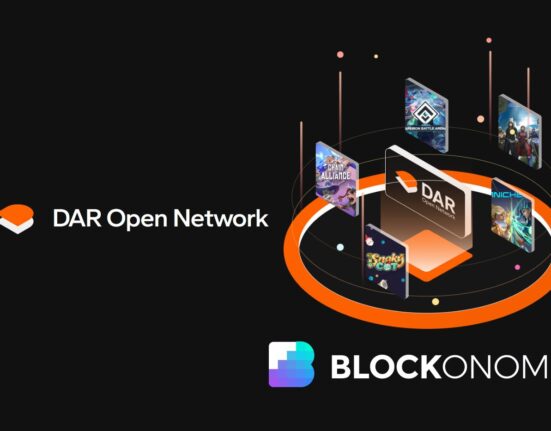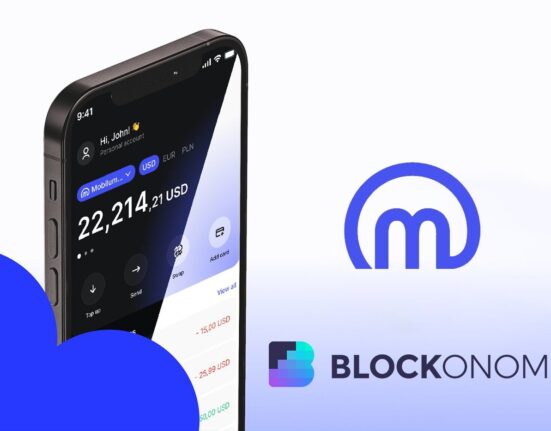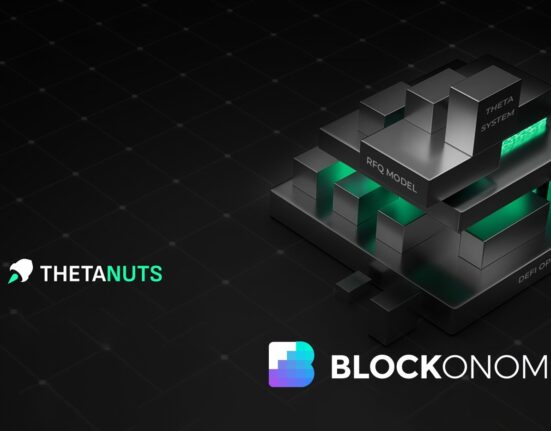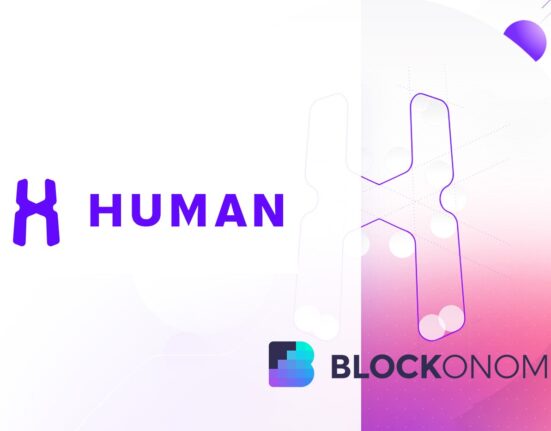We are indeed advancing towards a Metaverse era, where the virtual world completely mimics the real one. In the near future, almost everything from the real world will have its counterpart in the virtual realm. In a sense, what this opens up is exciting business possibilities. Let’s consider the case of real estate. Just as real estate is highly profitable in the physical world, the Metaverse offers similar potential. Already, Metaverse real estate is gaining popularity as a lucrative opportunity. Decentraland and The Sandbox are popular topics in every Metaverse forum. Buying a virtual real estate is not as complex as it sounds, in fact, if done with proper guidance.
Highlights
Metaverse real estate includes virtual land, buildings, and structures for buying, trading or leasing.Its popularity mirrors Bitcoin’s trajectory.Prominent avenues for Metaverse real estate investment includes Metaverse Gaming Real Estate, Metaverse Digital Storefronts and many more.Investing in Metaverse offers opportunities, but comes with risks like market regulation and cryptographic security.Buying virtual Metaverse property is a simple six-step process.Key Metaverse investment tips are research, wallet choice, trend monitoring and diversification.Decentraland, OpenSea, Voxels and Somnium Space are the prominent Metaverse real estate platforms.
In short, Metaverse real estate encompasses virtual land, buildings, and structures that users can purchase, trade, or lease, mirroring the real-world real estate market.
1.1. What Does The Metaverse Mean
The Metaverse signifies a fusion of Augmented Reality (AR), Virtual Reality (AR), Blockchain, Extended Reality, Artificial Intelligence and several similar technologies, forging a bridge between the digital and physical worlds. In this virtual platform, users engage in work, recreation, and social interactions through their digital avatars.
1.2. Why Metaverse Real Estate is Selling for Millions
Interestingly, Metaverse real estate’s current surge in popularity mirrors Bitcoin’s past trajectory. Once ridiculed, BTC’s current value proves doubters wrong. Similarly, Metaverse land is now worth millions due to increased investor, tech giant and creator interest. Transactions in Decentraland and The Sandbox spotlight this trend. As the Metaverse evolves, its real estate market is set to redefine digital-age investments and interactions, akin to BTC’s transformation in the financial world.
While exploring opportunities for Metaverse real estate investments, you will find a variety of avenues, including well-established and emerging sectors. Here are some prominent options to consider.
- Metaverse Gaming Real Estate
Invest in virtual real estate within Metaverse gaming platforms. Create and own in-game assets, like virtual homes and items, stored as NFTs for potential profit. Participate in Play-to-Earn models, where playing games can earn you real currency.
- Metaverse Digital Storefronts
Purchase virtual storefronts from top brands and companies integrated into the Metaverse. Users can explore these digital spaces, browse NFT collections, and make purchases using registered payment methods, offering real investment opportunities.
- Metaverse Entertainment Real Estate
In the entertainment sector, Metaverse connects talent hubs and audiences for immersive experiences. Expect investments in virtual concert venues, cinemas, and theme parks, along with potential ownership of such entertainment land parcels.
- Metaverse Commercial Real Estate
Explore opportunities in Metaverse commercial properties, such as virtual office spaces, retail stores and event avenues. As business expand into the virtual world, owning and leasing virtual commercial real estate can yield substantial returns.
- Metaverse Social Spaces
Invest in virtual hangout spots, clubs, and meeting spaces. These areas cater to social interactions and events, potentially becoming the go-to locations for virtual gatherings, conferences and networking opportunities.
- Metaverse Education Hubs
With the growth of virtual education, consider investing in Metaverse-based educational spaces. These hubs could host virtual classrooms, training centers, and interactive learning environments.
- Metaverse Healthcare Facilities
As telemedicine and virtual healthcare gain popularity, virtual clinics, hospitals, and wellness centers in the Metaverse may become valuable investments.
- Metaverse Cultural and Artistic Spaces
Support and invest in Metaverse art galleries, museums, and cultural hubs. Owning virtual spaces to showcase and sell art can be a rewarding endeavor.
- Metaverse Sustainable Real Estate
As sustainability becomes a global concern, consider investments in eco-friendly and green virtual properties. These sustainable virtual spaces can attract environmentally conscious users and investors.
In future, you may meet new opportunities also, because the Metaverse is in the stage of continued evolution. So, when you choose an avenue for investment, the choice should be based on your interest, goals, and market trends, considering both established and emerging sectors within the sector.
Ready for a Gaming Metaverse Revolution! What?
Yes, such an explosive growth for the gaming Metaverse sector is certain! As per a report, the sector is predicted to surge from $36.81 billion in 2022 at a 38.2% CAGR, hitting $710.21 billion by 2027.
2.1. Is Investing in Metaverse Real Estate Smart
Investing in Metaverse real estate presents exciting opportunities but also comes with notable risks:
Metaverse real estate markets are largely unregulated, leaving investors vulnerable to fraudulent schemes.
Managing cryptocurrencies and NFTs for Metaverse real estate property transactions requires technical proficiency and secure storage. Mishandling authentication methods or passwords can jeopardise property ownership.
While blockchains and smart contracts secure virtual real estate, future technological advancements like quantum computing, which may eventually compromise the cryptographic safeguards in place, could pose threats.
Virtual real estate’s value traditionally stems from scarcity, but the limitless potential of digital real estate space could challenge this concept. Developers can create more virtual real estate spaces, if demand surpasses supply.
Regulatory frameworks for Metaverse real estate may evolve over time, potentially affecting ownership rights and taxation.
Despite their downsides, investing in the Metaverse is smart. Firstly, it provides a diversified portfolio. Secondly, its growth potential is tremendous for its innovative technologies. Thirdly, it allows early adoption in a sector with tremendous future potential. Lastly, its flexibility offers various avenues for investment, from virtual real estates to digital assets.
Buying a virtual real estate property in Metaverse is a simple, six-step process.
- Step 1: Visit Metaverse Marketplace
Go to platforms like Decentraland or Sandbox and log in.
- Step 2: Browse and Compare
Explore available virtual real estate options and compare prices.
- Step 3: Select Property and Currency
Choose the virtual property and note the platform’s required cryptocurrency (for example, to purchase virtual properties in Decentraland, we require MANA, which is its native crypto)
- Step 4: Link Digital Wallet
Connect your digital wallet. To complete this process smoothly, check whether the wallet is compatible with the platform or not, before choosing.
Purchase compatible cryptocurrencies on exchanges and store it securely in your digital wallet.
- Step 6: Complete Purchase
Finally, click ‘buy’ to acquire the virtual real estate. The acquired land is stored as NFTs in your wallet under the ‘NFTs’ tab.
 Do You Know?
Do You Know?
Big names like Microsoft, Autodesk, Nike, Block, and Shopify are diving headfirst into the metaverse. Why? It is an unprecedented opportunity for them to expand their reach.
3.1. Things to Remember While Investing in Metaverse Real Estate
Investing in Metaverse real estate is simple, yet complex, for many reasons. There are a few important points you should keep in your mind while investing.
- Research: Do proper research about the chosen platform, from where you intend to make the purchase.
- Master The Art of Crypto: Ensure that you know everything about the crypto you have to use for the process, from purchase to storage.
- Choose The Right Wallet: Select a digital wallet, which is compatible with the platform and offers the best security infrastructure.
- Monitor Trends: You should keep an eye on all the developments and trends in the market.
- Try Diversification: Better it is to diversify your Metaverse real estate portfolio, if you are not in a position to take heavy risks.
Metaverse Companies Target Gen Z. Really?
In a revealing study, companies entering the Metaverse are setting their sights on men and Gen Z as their primary audience. Surprisingly, 11.3% are keen on men, while 8.6% focus on women. But the big revelation?
It’s time to know about the top Metaverse real estate platforms. Here are the seven most popular ones, arranged based on their importance, popularity and market share.
4.1. Decentraland
Decentraland is one of the most prominent virtual reality platforms where users can create, share and enjoy various virtual experiences using Ethereum blockchain technology. Its unique digital spaces are known as LAND. You can make purchases on this platform using its native cryptocurrency, MANA.
4.2. OpenSea
OpenSea is a decentralised marketplace where you can easily buy and sell NFTs, which include things such as digital art, collectibles, and avatars, making NFT trading accessible to all.
4.3. Voxels
Previously known as Cryprtovoxels, Voxel is an user-friendly Metaverse platform built on Ethereum, emphasising creativity, social interaction, and artistic expression, with a focus on art galleries, event venues and more.
4.4. Somnium Space
An open-source Metaverse, Somnium Space is a platform where users can own digital land, build structures, play games, and attend events in a highly immersive virtual world.
4.5. Sandbox
An Ethereum-based metaverse, The Sandbox is a platform which empowers users to create, share and trade assets, offering ownership of in-game creations and fostering a user-driven virtual world.
4.6. ERTHA
Hosted on Binance Smart Chain, ERTHA is a life-simulation Metaverse, where land parcels are unique hexagons, each with its resources and location, making it accessible to investors and easy to purchase with various crypots.
4.7. Upland
Comparatively a newcomer, Upland is a innovative Metaverse platform offering affordable virtual real estate linked to real-world addresses, with a simple registration process and ownership requirements achievable through in-platform purchases or crypto.
5. Endnote
Anyway, the acquisition of virtual real estate in the Metaverse is an interesting process with vast potential. The process involves blockchain-based transactions, often utilising cryptos, to secure digital parcels within decentralised virtual worlds. It is crucial for prospective investors to exercise due diligence, ensuring the legitimacy and value of their virtual property. Additionally, staying informed about evolving regulations and emerging technologies is essential for long-term success in this dynamic ecosystem.
6. FAQs
The Metaverse is a collective virtual shared space, and real estate in the Metaverse refers to digital properties within this space, often bought and sold using blockchain technology.
Blockchain ensures secure ownership records, transparent transactions, and smart contracts, for Metaverse real estate, eliminating fraud.
You typically use a Metaverse-specific marketplace, choose a digital property and execute a blockchain-based transaction with a cryptocurrency like Ethereum or a Metaverse-specific token like MANA.
No, Metaverse real estate is entirely digital; you are buying digital space, assets or virtual buildings within the virtual world.
Evaluate factors like the virtual world’s popularity, potential for development, community engagement, and the scarcity of virtual land to make informed investment decisions.
Well Done! You have now completed the Lesson.
Complete the Quiz and Get Certified! All The Best!
Disclaimer and Risk Warning
The information provided in this content by Coinpedia Academy is for general knowledge and educational purpose only. It is not financial, professional or legal advice, and does not endorse any specific product or service. The organization is not responsible for any losses you may experience. And, Creators own the copyright for images and videos used. If you find any of the contents published inappropriate, please feel free to inform us.



 Do You Know?
Do You Know?



